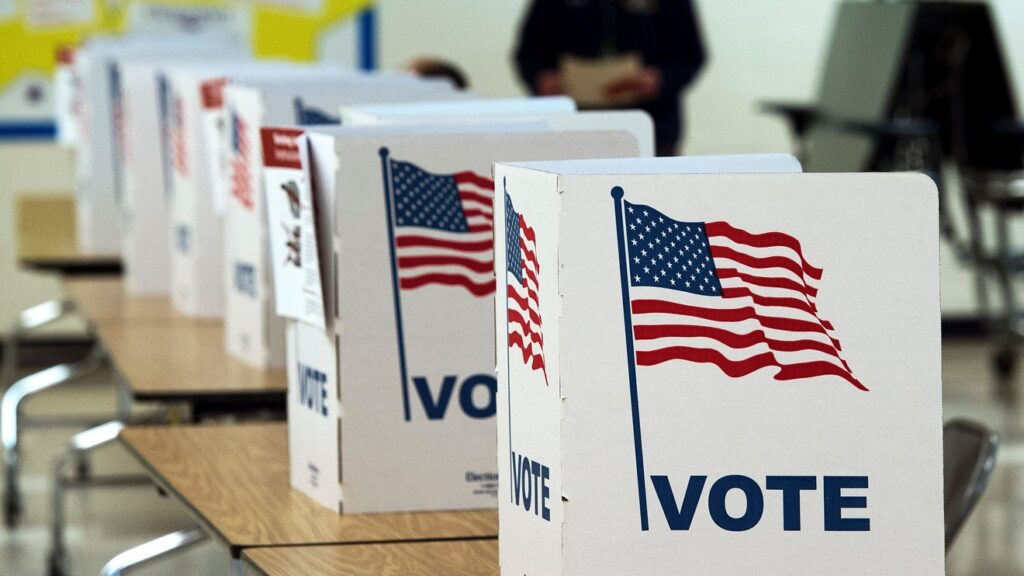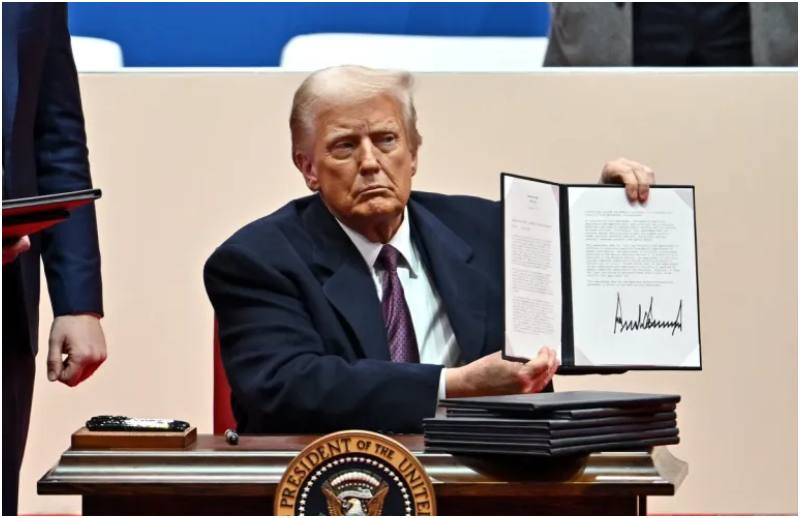A new federal lawsuit filed in Washington, D.C., is challenging President Donald Trump’s latest executive order on election regulations, arguing that it unlawfully encroaches on state authority and voter rights.
The lawsuit, led by the Democratic National Committee, claims Executive Order 14248, titled “Preserving and Protecting the Integrity of American Elections,” violates federal law and the U.S. Constitution by attempting to centralize election control under presidential authority.
The Executive Order’s Provisions and the Legal Challenge
Signed on March 25, the order mandates strict voter ID requirements and seeks to bar states from accepting mail-in ballots postmarked by Election Day but received afterward. The lawsuit, spanning 74 pages, asserts that these provisions overstep the constitutional boundaries of presidential power.
“In the United States of America, the President does not get to dictate the rules of our elections,” the lawsuit states.
It contends that Trump’s directive undermines long-standing state control over elections and contradicts federal laws that allow state-specific ballot receipt deadlines.
The complaint argues that the executive order’s restrictions violate the Tenth Amendment, which reserves powers not explicitly delegated to the federal government for the states. It also calls for multiple injunctions to block the order’s enforcement, claiming it infringes upon congressional authority and established voting rights laws.
Fifth Circuit’s Influence and Justice Kavanaugh’s Stance

One of the most contentious points in the lawsuit is Trump’s reliance on a 2024 ruling from the conservative Fifth Circuit Court of Appeals. In Republican National Committee v. Wetzel, a panel of Trump-appointed judges struck down Mississippi’s practice of counting mail-in ballots received after Election Day. Trump’s executive order cites this decision as justification for a nationwide ban on late-arriving mail-in ballots, despite the fact that similar laws in nearly 30 states have been upheld in other courts.
The lawsuit highlights what it calls an “anomalous” ruling by the Fifth Circuit, pitting the decision against legal interpretations from the Supreme Court, including opinions by Justice Brett Kavanaugh. The complaint cites Kavanaugh’s stance that deadlines for counting mail-in ballots are a matter of state law, stressing that “more than a century of state practice has made clear that there is no conflict between federal election statutes and such laws.”
Voter ID Mandates and Disenfranchisement Concerns
Another contentious aspect of the executive order is its requirement that voters provide formal proof of citizenship using a narrowly defined set of documents, including a U.S. passport, REAL ID, military identification, or government-issued photo ID explicitly listing citizenship. The lawsuit argues this measure is a voter suppression tactic that disproportionately affects lower-income individuals, minorities, and military families.
“At least 21.3 million — nearly 9% of American citizens of voting age — lack access to documentation necessary to prove citizenship,” the complaint states. It points to the failed implementation of a similar policy in Kansas, which resulted in thousands of legitimate voter registrations being rejected.
Political and Legal Ramifications
The plaintiffs argue that Trump’s order is designed to benefit the Republican Party by imposing undue burdens on Democratic-leaning voter blocs. The lawsuit points out that restrictions on mail-in voting will disproportionately impact groups that historically favor Democratic candidates, asserting that the executive order is “by purposeful design.”
Legal experts suggest that the case could set a significant precedent in election law and presidential authority. Watering down state election oversight through executive action, they argue, could create a dangerous precedent for future administrations.
While the lawsuit seeks immediate injunctive relief to prevent the order’s enforcement, its broader implications could reshape the legal landscape of federal election regulations ahead of the next election cycle.
As the case unfolds, it is likely to reignite debates over voting rights, executive power, and constitutional law in the highest courts of the nation.

